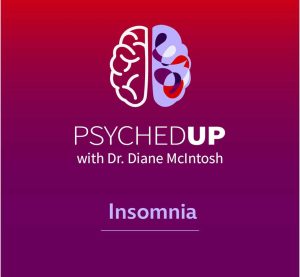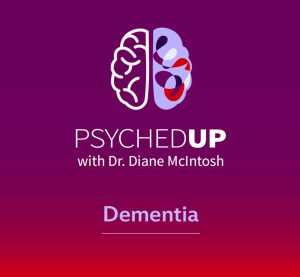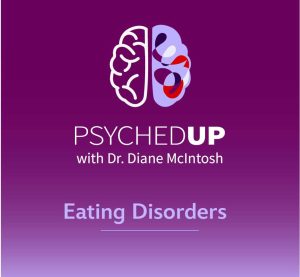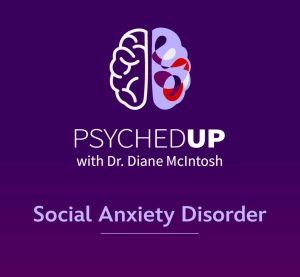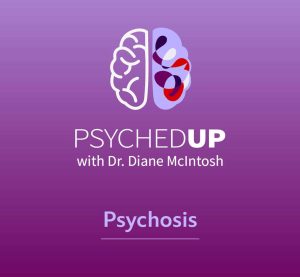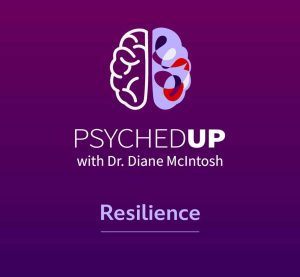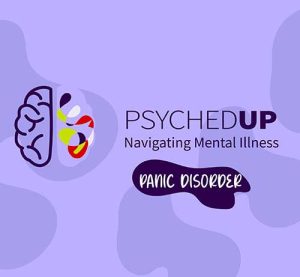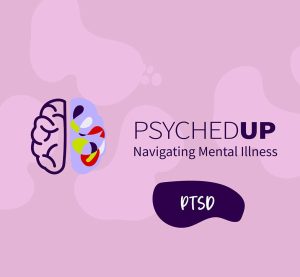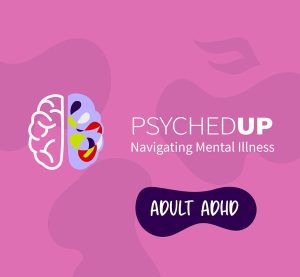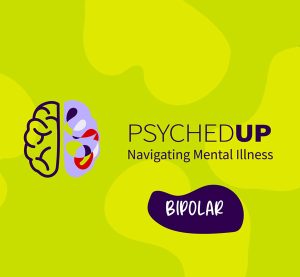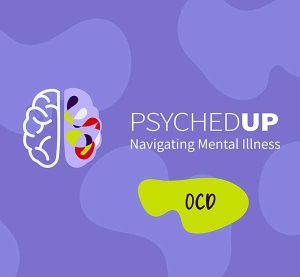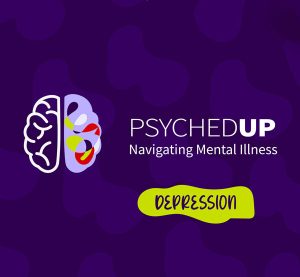Thinking of suicide or worried about someone you know? Call or text 9-8-8, toll-free, anytime, for support.
This is PTSD: Episode 5
What is post traumatic stress disorder? Do childhood traumas make some of us more susceptible to it than others? How can we tell the difference between emotional trauma and PTSD?
In this episode Dr. Diane McIntosh answers these questions and many more. Chelan is our guest and she shares her experience with PTSD and the steps towards a diagnosis and treatment. Dr. Randy Mackoff and Dr. McIntosh explore the benefits of talk therapy and the latest advances in medication for treating PTSD.
Listen in for an honest and empathetic conversation about PTSD, its causes, symptoms, diagnosis, and treatment.

Dr. Randy Mackoff, PhD
Dr. Randy Mackoff is a registered psychologist in British Columbia. He has a private clinical practice where he provides psychological treatment for a wide range of issues, including but not limited to depression, anxiety, PTSD, coping with psychosis, and marital therapy. He is a retired Professor in the Criminology Department at Douglas College and a past Chairperson of the Criminology Department. He is a Clinical Associate in the Clinical Psychology Department at Simon Fraser University, providing clinical supervision to graduate students. He currently consults with law enforcement agencies in Crisis Negotiations, Undercover Operations, Witness Protection, Psychological Support for witnesses, Source Suitability, Major Crimes, Recruiting, and Human Resources. He is a designated Vancouver Police Department Psychologist and represents them at the Major Cities Chiefs Association Psychology meetings. He is the Co-Chair of the Psychology Committee for the Canadian Association of Chiefs of Police (CACP).
Enjoying PSYCHEDUP?
Rate and review the podcast to help us reach more listeners.
Episode Highlights

6:20
Chelan shares her story of living with PTSD

12:03
Dr. Mackoff joins Dr. McIntosh to discuss some of the risk factors for developing PTSD, and ways to treat it

26:16
Shrink wrap: Dr. McIntosh's helps give context to PTSD.
Key quotes from This is PTSD
"I didn't know how to put my finger on the “what” exactly, other than I had a lot of anger...I was waiting to order my food, and my fists were clenched because I was ready to hit the person in front of me for no reason other than I was angry.”
8:44
“She listened to my story and basically told me that she was going to help me and that this was PTSD and it was treatable” 11:13
“Having treated PTSD for nearly 25 years, I can say I don’t think I’ve met a patient who has PTSD that does not have significant sleep symptoms” 22:19
“Before I knew I was on the right path, I was in and out of psychiatric wards. It was not an easy journey, but those trips were there to save me… everything that we had done, the treatments, the medication, the therapy, was working” 24:54
“It will pass, the memories will fade, it does become liveable, and eventually the liveable becomes happiness” 28:08
Other PSYCHEDUP Episodes
Season 2
Season 1
More About PTSD
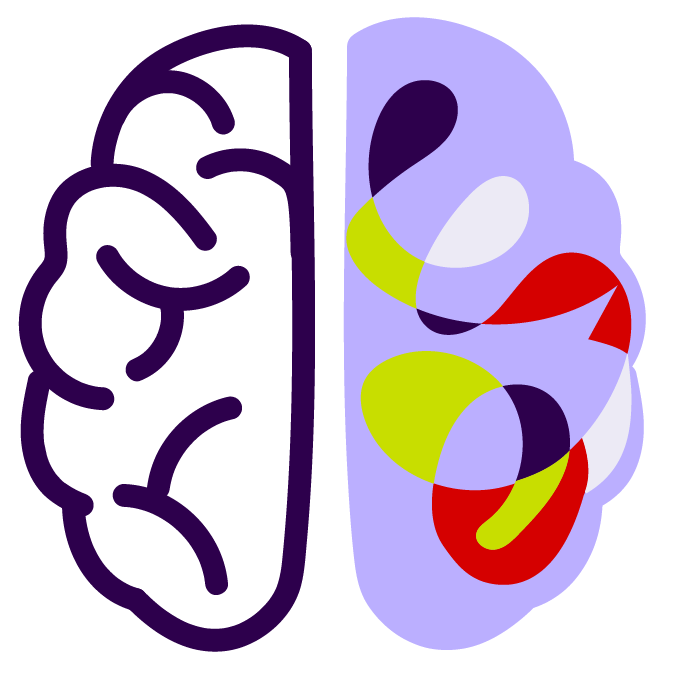
Post-traumatic stress disorder (PTSD) is a mental health condition triggered by exposure to a terrifying or life-threatening event, either through direct experience or as a witness. It often involves re-experiencing symptoms, where individuals feel as if they are reliving the traumatic event. These symptoms can take the form of intrusive memories, nightmares, or flashbacks. Such experiences can cause significant distress and anxiety. PTSD is typically not caused by a single traumatic event but rather results from ongoing or multiple exposures to trauma.
To be diagnosed with PTSD, the symptoms must persist for at least a month. Common symptoms include:
- Intrusive memories: often unexpected and relentless, causing intense distress
- Avoidance of people, places, or activities that may trigger memories of the traumatic event
- Reactivity manifesting as irritability, angry outbursts, reckless behaviour or self-destructive actions
- Hypervigilance
- Difficulty concentrating
- Trouble sleeping
PTSD develops when the brain and body remain stuck in a heightened state of stress long after a traumatic event has passed. Normally, when faced with danger, the brain’s fear center, the amygdala, triggers a fight-or-flight response, releasing cortisol to help the body react. In people with PTSD, this response doesn’t shut off properly, keeping the brain and body in a constant state of alert. While traumatic events such as violence, accidents, or natural disasters can lead to PTSD, not everyone exposed to trauma develops the disorder. A key factor in whether PTSD develops is the phenomenological component, the personal meaning of the event to the individual. Deeply personal, prolonged, or betrayal-based trauma, like sexual violence or abuse, carries a higher risk.
Cognitive Behavioral Therapy (CBT), particularly prolonged exposure therapy, helps patients process trauma by repeatedly recalling their experiences in a controlled environment, reducing the fear response over time.
Eye Movement Desensitization and Reprocessing (EMDR), involves recalling traumatic events while engaging in guided eye movements.
Medications, such as antidepressants, can help manage PTSD symptoms and co-occurring conditions like anxiety and depression. In severe cases, certain antipsychotic medications may be beneficial.
Related Posts on PTSD
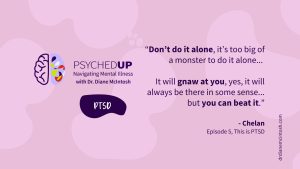
Living with PTSD: A journey from trauma to healing
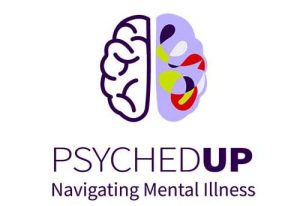
PSYCHEDUP PODCAST: Understanding and acting on mental illness

Pets can improve mental health and well-being

Psychiatric Guidance for Optimal Patient Care
Founded by Dr. Diane McIntosh, RAPIDS Health provides timely, effective clinical decision support for mental health diagnosis and treatment. Whether you’re a clinician or someone seeking help, we offer evidence-based, personalized treatment guidance tailored to each individual’s needs.


